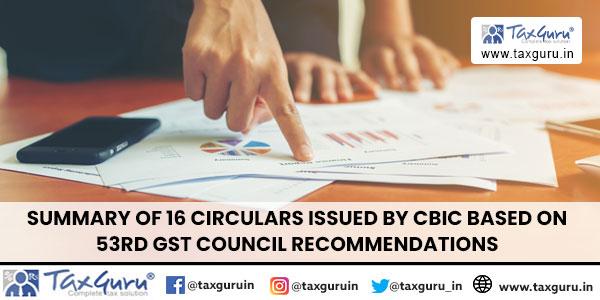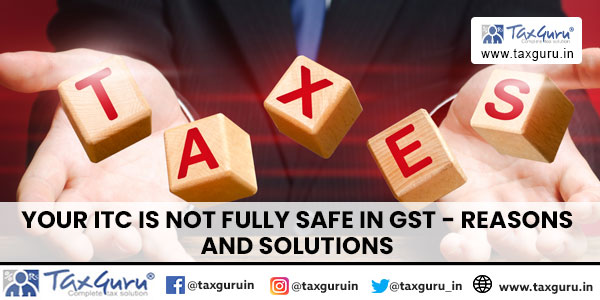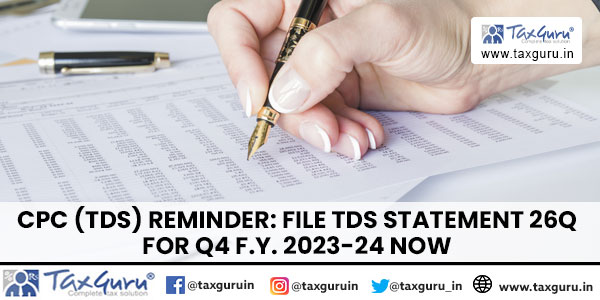Case Law Details
Shri Laxminarayan S. Yadav Vs. Asst. Commissioner of Income Tax (ITAT Mumbai)
There is no dispute that the assessee has made investment in a new residential house for claiming deduction under section 54 of the Act. However instead of showing the actual investment of Rs. 20 lakh, the assessee has claimed higher deduction of Rs. 25 lakh. Notably, in the course of assessment proceedings, the assessee vide letter dated 19th November 2012, has not only brought to the notice of the Assessing Officer that the actual investment made in the new residential house is Rs. 20 lakh, but, he has also filed a revised computation of income on 20th November 2012, offering taxable long term capital gain at a higher figure of Rs. 24,98,488. It is also a fact on record that the Assessing Officer has accepted the income shown in the revised computation of income. Therefore, considering the peculiar facts of the present case, we are of the view that the explanation of the assessee to the effect that investment shown in new house at Rs. 25 lakh was due to a bonafide mistake is acceptable. Therefore, taking a lenient view, we hold that the assessee cannot be charged with the offence of concealing particulars of income. Accordingly, we delete the penalty imposed under section 271(1)(c) of the Act.
Full Text of the ITAT Order is as follows:-
In this appeal, the assessee has challenged the order passed by the learned Commissioner (Appeals)-45, Mumbai, confirming the penalty imposed under section 271(1)(c) Income-tax Act, 1961 (for short “the Act”) amounting to Rs. 1,03,000, for the assessment year 2010-11.2. Brief facts are, the assessee an individual is engaged in the business of retail trading in sports goods and toys. For the assessment year under dispute, the assessee filed his return of income on 11th October 2012, declaring total income of Rs. 22,44,872. In the course of assessment proceedings, the Assessing Officer found that while offering taxable long term capital gain of Rs. 19,98,488 arising from sale of residential house, the assessee also claimed deduction under section 54 of the Act by showing investment made in purchase of new residential house for an amount of Rs. 25 lakh. In the course of assessment proceedings, when the Assessing Officer called upon the assessee to furnish the agreement for purchase of new residential house, the assessee submitted a letter dated 19th November 2012, stating that the investment in new residential house was Rs. 20 lakh as on the date of filing of return of income and accordingly filed a revised computation on 29th November 2012, offering taxable long term capital gain of Rs. 24,98,488. Though, the Assessing Officer accepted the income shown by the assessee as per revised computation of income, however, he initiated proceedings for imposition of penalty under section 271(1)(c) of the Act for concealing particulars of income, since, the assessee had shown investment in new residential house at Rs. 25 lakh. In response to the show cause notice issued under section 274 r/w section 271(1)(c) of the Act, though, the assessee explained that the mistake in showing investment at Rs. 25 lakh was a bonafide error, however, the Assessing Officer rejecting the explanation of the assessee imposed penalty of Rs. 1.03 lakh. Though, the assessee challenged the imposition of penalty by filing an appeal before the learned Commissioner (Appeals), however, he also confirmed the imposition of penalty.
3. Learned Authorized Representative reiterating the stand taken before the Departmental Authorities submitted, due to a bonafide mistake investment in new house was shown at Rs. 25 lakh instead of Rs. 20 lakh. He submitted, as soon as the mistake came to the notice of the assessee, he filed revised computation offering the excess income and also paid the tax due along with interest. He, therefore, submitted, there is no deliberate attempt on the part of the assessee to conceal particulars of income so as to levy penalty under section 271(1)(c) of the Act. In support of such contention, he relied upon the decision of the Tribunal, Mumbai Bench, in Prema Gopal Rao v/s DCIT, ITA no. 8653/Mum./2011, dated 7th January 2015.
4. Learned Departmental Representative relying upon the observations of the departmental authorities submitted, showing of investment in new house at Rs. 25 lakh, cannot be considered as bonafide mistake. He submitted, the revised computation filed during assessment proceedings offering higher long term capital gain would also not absolve the assessee from the offence committed, since, he should have filed a revised return of income as per the provisions of the Act.
5. We have heard rival contentions and perused the material available on record. As could be seen from the facts on record, there is no dispute that the assessee has made investment in a new residential house for claiming deduction under section 54 of the Act. However instead of showing the actual investment of Rs. 20 lakh, the assessee has claimed higher deduction of Rs. 25 lakh. Notably, in the course of assessment proceedings, the assessee vide letter dated 19th November 2012, has not only brought to the notice of the Assessing Officer that the actual investment made in the new residential house is Rs. 20 lakh, but, he has also filed a revised computation of income on 20th November 2012, offering taxable long term capital gain at a higher figure of Rs. 24,98,488. It is also a fact on record that the Assessing Officer has accepted the income shown in the revised computation of income. Therefore, considering the peculiar facts of the present case, we are of the view that the explanation of the assessee to the effect that investment shown in new house at Rs. 25 lakh was due to a bonafide mistake is acceptable. Therefore, taking a lenient view, we hold that the assessee cannot be charged with the offence of concealing particulars of income. Accordingly, we delete the penalty imposed under section 271(1)(c) of the Act.
6. In the result, assessee’s appeal is allowed.
Order pronounced in the open Court on 10.11.2017


























